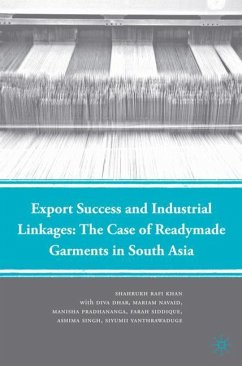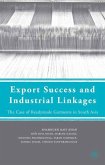"Moving beyond the theoretical grandstanding that has characterized the study of industrial development for years, this book provides a detailed and unbiased picture of how industries really develop, using the case of the textiles and ready-made garment industry in South Asia. It is historically well-informed, empirically well-grounded, and theoretically intelligent, especially given that the country studies have all been done by undergraduate students. It is highly recommended." - Ha-Joon Chang, University of Cambridge, author of Kicking Away the Ladder and Bad Samaritans
"This book looks at first glance to be a narrow study of the ready-made garment industry in several South Asian countries. Do not be decieved. The empirics illuminate some of the biggest issues of world development - including how countries come to specialize (not just what they specialize in), how different types of industrial policies actually work to change investment patterns, and even, what are the chances of rapid industrial upgrading by firms and economies at the lower ends of global value chains." - Robert Wade, Professor of Political Economy, London School of Economics, and Winner of Leontief Prize in Economics, 2008
"This book looks at first glance to be a narrow study of the ready-made garment industry in several South Asian countries. Do not be decieved. The empirics illuminate some of the biggest issues of world development - including how countries come to specialize (not just what they specialize in), how different types of industrial policies actually work to change investment patterns, and even, what are the chances of rapid industrial upgrading by firms and economies at the lower ends of global value chains." - Robert Wade, Professor of Political Economy, London School of Economics, and Winner of Leontief Prize in Economics, 2008








